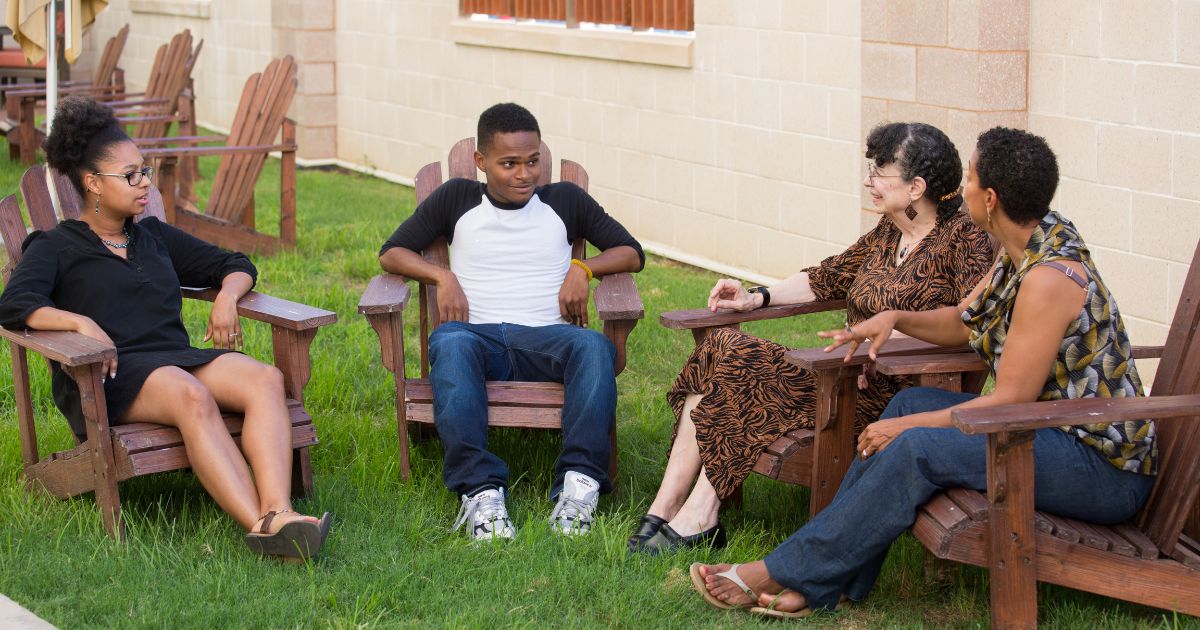Navigating the journey to recovery can feel like an overwhelming journey through the unknown. California is a state known for its diverse and progressive approaches to health and wellness. People seeking sobriety can select from a myriad of recovery options. People can join traditional 12-step programs or other alternative California recovery groups to maintain their progress. Each approach offers unique philosophies, support systems, and methods that can help you achieve lasting recovery.
To find the right California recovery group, it’s important to explore the nuances between 12-step vs alternatives. In doing so, you can learn how each program operates, its core principles, and what members can expect when joining. Whether you’re just starting your sober journey or looking for a path that resonates more with your personal beliefs and lifestyle, understanding more about the different recovery groups in California can help you make an informed decision that best supports your needs.
What Is a Recovery Group?
A recovery group is a gathering of individuals who share the goal of overcoming addiction or managing a specific issue, such as substance abuse, mental health disorders, or behavioral problems. Recovery support groups provide a compassionate environment where members can share experiences, offer mutual support, and employ specific strategies to help maintain recovery.
California Recovery Group Options
The concept of recovery groups began with Alcoholics Anonymous (AA), founded in 1935 by Bill Wilson and Dr. Bob Smith. AA was originally based on the Christian faith and has since taken on a more generalized approach to spirituality. For this reason, traditional 12-step programs view recovery from a spiritual perspective.
The first AA meetings were held in San Diego in 1939, making it the oldest California recovery group in the state. As time progressed, AA’s 12-step program gained widespread popularity, expanding across the United States and the rest of the world. This success then led to other 12-step groups, like Narcotics Anonymous, to provide a more tailored approach for those struggling with drug addiction.
Some people struggled to identify with the spiritual aspect of AA and NA and wanted an alternative to the 12-step model. As a result, many people created their own California recovery groups to branch away from the religious overtones found in 12-step meetings.
12-Step Recovery Groups in California
12-step recovery groups in California offer a supportive community for those seeking freedom from drug addiction. They provide a safe space to share experiences, receive guidance from others in recovery, and learn healthy coping skills.
A key benefit of these California recovery groups is their emphasis on the 12 steps, which are effective principles for overcoming addiction. These steps include acknowledging the chaos caused by drug use, seeking help from a higher power, making amends, and committing to ongoing growth and self-reflection.
Some examples of California recovery groups that incorporate the 12 steps include:
- Alcoholics Anonymous (AA): Ideal for those struggling with alcoholism, AA offers a supportive community based on the 12-step program, which incorporates spiritual principles.
- Narcotics Anonymous (NA): Narcotics Anonymous is suitable for individuals looking to recover from drug addiction, including prescription drugs and illicit substances, also based on a 12-step program.
- Cocaine Anonymous (CA): Specifically tailored for individuals recovering from cocaine addiction, Cocaine Anonymous utilizes the traditional 12-step program and welcomes anyone with a drug-related issue, not just cocaine.
- Celebrate Recovery: A Christian-based recovery program that combines spirituality with the 12-step model. It encourages individuals to rely on their faith to overcome addiction and find healing from past traumas.
Joining a California recovery group can help you build a strong sober support network. By connecting with others who share similar experiences, you can forge meaningful relationships and gain insights from others in recovery. This sense of community is vital, providing a sense of belonging and understanding.
Many 12-step programs provide both in-person and virtual meetings. This makes support accessible to those with disabilities or other barriers to attending meetings. However you attend, exploring the different California recovery groups can help you find the best fit for your recovery path.
Get confidential help from our addiction treatment specialists in Orange County. Call to join our rehab program today!
Call 866-881-118412-Step Alternative Recovery Groups in California
12-step programs have moved away from their Christian roots toward a more generalized spiritual approach. These alternative California recovery groups stressed secular principles over spiritualism. Some alternative groups focus on Eastern spirituality, meditation, and mindfulness practices. Whatever the approach, these groups offer a sense of belonging and understanding for those seeking support in recovery.
Examples of alternative California recovery groups include:
- SMART Recovery: Self-Management And Recovery Training (SMART) offers science-based techniques to help individuals overcome addiction. The 4-point program teaches people how to identify and cope with triggers, manage cravings, and develop healthier habits in recovery.
- Refuge Recovery: An alternative recovery group that incorporates Buddhist principles into its program. The focus is on mindfulness and developing a deeper understanding of oneself. Refuge Recovery also offers online resources like guided meditations and podcasts to promote self-care and recovery maintenance.
- LifeRing Secular Recovery: These secular sobriety groups focus on self-empowerment and support through non-religious approaches. LifeRing Secular Recovery helps individuals maintain a sober lifestyle through peer support, practical tools, and positive reinforcement.
- Women for Sobriety: A non-profit organization that provides support and resources for women struggling with addiction. Their 13-statement program is based on the belief that women have unique needs in their recovery journey and focuses on building self-esteem, personal responsibility, and healthy coping strategies.
All of these alternatives provide a supportive community for those seeking recovery outside of traditional 12-step programs. They offer different approaches and strategies, allowing individuals to find the best fit for their personal journey towards sobriety.
Alternative California recovery groups also offer online meetings and resources. These are for those who cannot attend in-person meetings due to various reasons, such as location or schedule conflicts. This makes it easier for people to receive support and stay connected with the recovery community.
How Do Recovery Support Groups Help?
People attend recovery support groups primarily for the community of individuals who understand the challenges of overcoming addiction. These groups offer a safe and non-judgmental space where members can share their experiences and struggles with substance abuse, mental health issues, or other addictive behaviors.
The sense of camaraderie and mutual understanding gained from participating in a California recovery group is vital for many. It alleviates the loneliness and isolation that often accompany addiction. Recovery groups help people maintain sobriety by offering ongoing support, practical advice, and proven strategies for dealing with cravings and relapse.
The benefits of participating in recovery support groups include:
- Mutual Support: Members provide emotional support to each other, which can reduce feelings of isolation and build a network of peers who understand
- Accountability: Recovery meetings often provide a sense of accountability, which can motivate people to maintain their sobriety.
- Shared Experience: Learning from the experiences of others who have faced similar challenges while staying sober can be incredibly inspiring and educational.
- Structure and Routine: Attending regular meetings can offer a healthy routine to individuals who lack structure during active addiction.
- Anonymity and Safety: Groups often emphasize confidentiality, which can make members feel safe sharing personal experiences and struggles.
- Access to Resources: Many groups provide resources about treatment options, educational materials, and sometimes professional counseling referrals.
- Spiritual Growth: Especially in groups that follow the 12-step model, there’s an emphasis on spiritual growth and finding a higher purpose, which can be transformative for many participants.
- Lifelong Learning: Recovery is a continuous process, and participation in support groups can provide ongoing learning and personal development.
Fostering an environment of growth, acceptance, and support, recovery groups play a vital role in sobriety. Helping individuals achieve and maintain sobriety and improve their overall quality of life.
Which California Recovery Group Is Right for Me?
Choosing the right recovery group in California—or anywhere else—depends on your specific needs, beliefs, and the substance or behavior you are trying to manage.
Here are some considerations to keep in mind when selecting a recovery group:
- Substance or Behavior: Choose a group that focuses on your specific issue, whether it’s alcohol, drugs, or a behavioral problem.
- Philosophical or Spiritual Orientation: Some groups, like those following the 12-step model, involve a spiritual component, while others, like SMART Recovery, are secular and based on scientific principles.
- Group Dynamics: Attend a few meetings to see if the group’s style and dynamics fit your comfort level. It’s important that you feel safe and supported.
- Location and Schedule: Look for a group that meets at a time and place convenient for you, as regular attendance is crucial for effective support.
- Anonymity and Privacy: Consider how the group handles confidentiality, as this can impact your willingness to share and participate.
No matter what approach a person chooses for their recovery journey, the most important thing is finding a supportive community of like-minded individuals who can offer understanding and guidance. Whether it’s through a 12-step program or an alternative recovery group, having a strong support system is crucial in maintaining sobriety.
It is important to note that these California recovery groups do not replace the care found in traditional California addiction treatment centers. Instead, these groups offer extra support in your recovery journey. It is always recommended to consult with a treatment provider when exploring different addiction recovery options to find the right fit for your unique needs.
Looking for quality substance abuse treatment that’s also affordable? South Coast accepts most major insurance providers. Get a free insurance benefits check now.
Check Your CoverageOther Options for Addiction Aftercare in California
You can take advantage of various things after completing your time at a California recovery group.
Here are some of the key aftercare services:
- Sober Living Homes: These are residential facilities that provide a drug-free environment for individuals recovering from addiction. Residents follow the rules, contribute to the household, and participate in group meetings or therapy sessions. Sober living homes serve as a transitional housing option to help individuals reintegrate into society while maintaining their sobriety.
- Alumni Support Groups: Many rehabs offer alumni programs that connect former clients through social events, regular meetings, and support groups. Alumni groups help maintain the sense of community and support after treatment.
- Outpatient Programs: After inpatient care, many individuals transition into outpatient care to continue treatment while living at home and reintegrating into daily life.
- Therapy and Counseling: Ongoing therapy is a cornerstone of addiction aftercare. Therapists can provide ongoing support for addiction.
- Educational and Employment Support: Some aftercare programs offer services to help individuals gain new skills, continue their education, or find employment.
- Wellness and Lifestyle Programs: Programs that focus on physical health, such as fitness classes, nutritional counseling, and wellness workshops, are a part of aftercare.
- Monitoring Programs: Certain programs offer regular drug testing and check-ins with a recovery coach or mentor to help keep individuals accountable.
These aftercare options are designed to provide a supportive network and resources. The goal is to help individuals navigate the challenges of life post-treatment, ensuring a better chance of long-term recovery.
If you’re not sure which services can help you maintain your sobriety, here are some questions to ask an Orange County rehab center.
Addiction Treatment in Orange County, CA at SCBH
If you or a loved one are seeking a California recovery group, South Coast Behavioral Health is here to help. We offer a full continuum of evidence-based and holistic care for drug addiction and mental health disorders. Treatment for substance abuse takes place along an entire spectrum of care.
Our addiction treatment programs include the following levels of care:
- Medical Detox
- Residential Treatment
- Partial Hospitalization
- Intensive Outpatient
Our treatment programs also provide specialty tracks for veterans and first responders. We also have programs for members of the Native American community. Through our continuum of care, we provide various behavioral therapies, support groups, and the use of medically-assisted treatment (MAT). Likewise, you can also take advantage of 12-Step meetings or alternatives like SMART Recovery during inpatient and outpatient treatment
Medical Detox in California
Our medical detox program in California is staffed by caring and compassionate professionals who can provide you with medications to manage your withdrawal symptoms. You’ll do that as the first step to fully treating your addiction.
Residential Treatment in California
After successfully completing medical detox, you’ll receive inpatient treatment in Orange County California. While there, you’ll receive MAT and dual diagnosis treatment to deal with any cravings or co-occurring mental health issues you may be battling.
Residential treatment facilities in Costa Mesa, Irvine, and Huntington Beach are available for those who desire gender-specific care. There, patients can access round-the-clock medical attention and monitoring.
In addition to individual and group counseling and medication management, you’ll also have access to leisure activities and family support services.
Partial Hospitalization in California
Most clients start in our residential treatment program. Afterwards, they may desire something that still provides structure and support, but with extra space and time to oneself. For that, we offer partial hospitalization in Newport Beach.
A step down from inpatient care but with more structure than conventional outpatient programs, partial hospitalization offers a good balance for those looking to slowly return to normal life. Here, you can receive care five to seven days a week for a couple of hours each day, returning back home in the evening. This allows you to recover without putting your life completely on hold.
Intensive Outpatient Treatment in California
For those leaving inpatient residential treatment or partial hospitalization, intensive outpatient programs (IOP) are yet another gradual step forward on the road to recovery.
With a focus on group therapy, individual counseling, and education, clients undergoing intensive outpatient treatment in Newport Beach can meet three to five days a week. Each session lasts three hours. Clients in IOP can also take advantage of SMART Recovery meetings.
This level of care requires the least amount of attendance at a facility.
Start Today
If you or a loved one are looking for drug rehab in Orange County but wonder how long treatment takes or have other questions, call us at 866-881-1184 or contact us here. Our highly qualified staff would love to help you.










